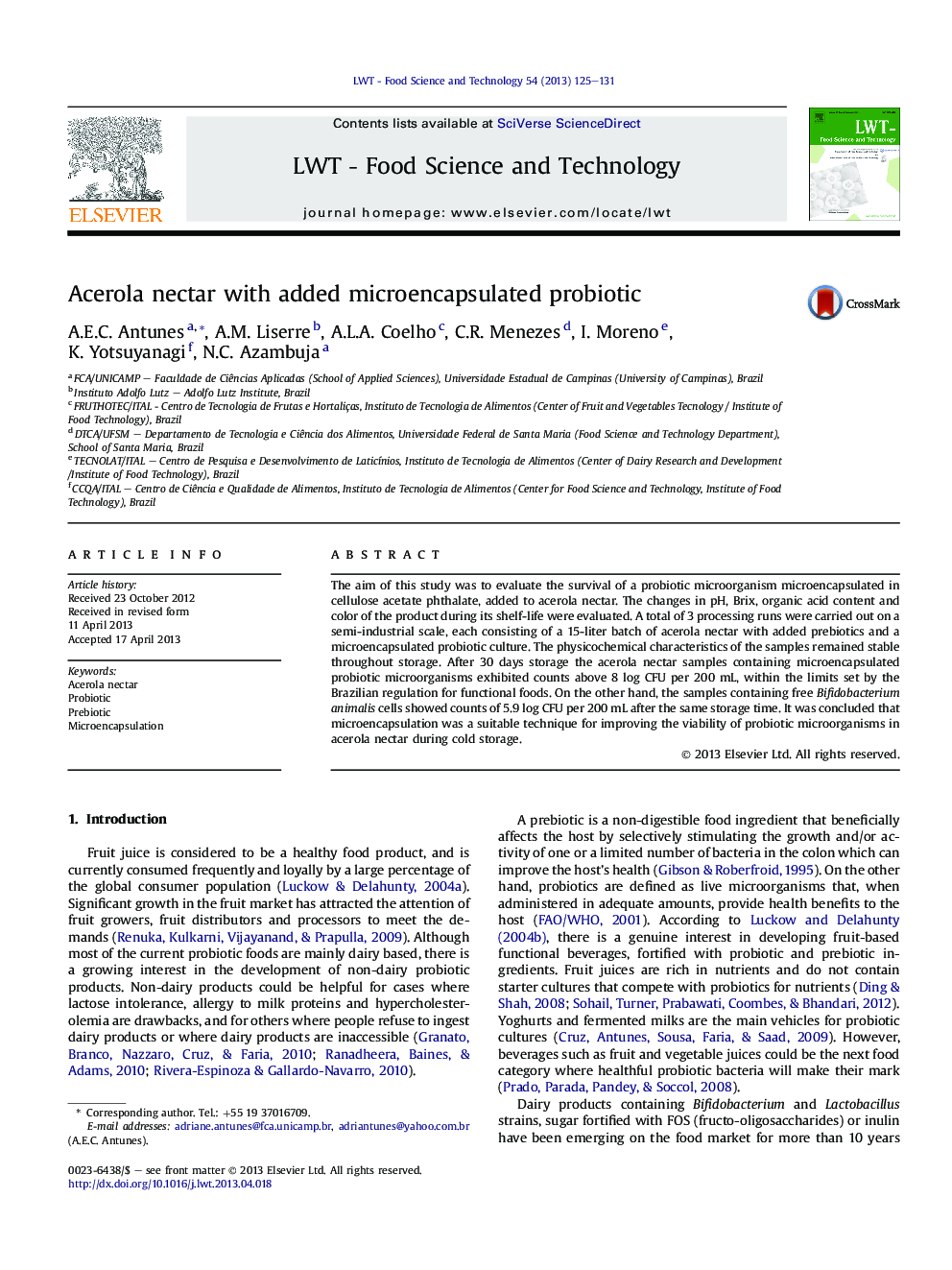| Article ID | Journal | Published Year | Pages | File Type |
|---|---|---|---|---|
| 6404188 | LWT - Food Science and Technology | 2013 | 7 Pages |
â¢Microencapsulation was evaluated as a tool to improve the probiotic viability.â¢Probiotic juice (acerola nectar) was developed.â¢Microencapsulation was a suitable technique.
The aim of this study was to evaluate the survival of a probiotic microorganism microencapsulated in cellulose acetate phthalate, added to acerola nectar. The changes in pH, Brix, organic acid content and color of the product during its shelf-life were evaluated. A total of 3 processing runs were carried out on a semi-industrial scale, each consisting of a 15-liter batch of acerola nectar with added prebiotics and a microencapsulated probiotic culture. The physicochemical characteristics of the samples remained stable throughout storage. After 30 days storage the acerola nectar samples containing microencapsulated probiotic microorganisms exhibited counts above 8 log CFU per 200Â mL, within the limits set by the Brazilian regulation for functional foods. On the other hand, the samples containing free Bifidobacterium animalis cells showed counts of 5.9 log CFU per 200Â mL after the same storage time. It was concluded that microencapsulation was a suitable technique for improving the viability of probiotic microorganisms in acerola nectar during cold storage.
